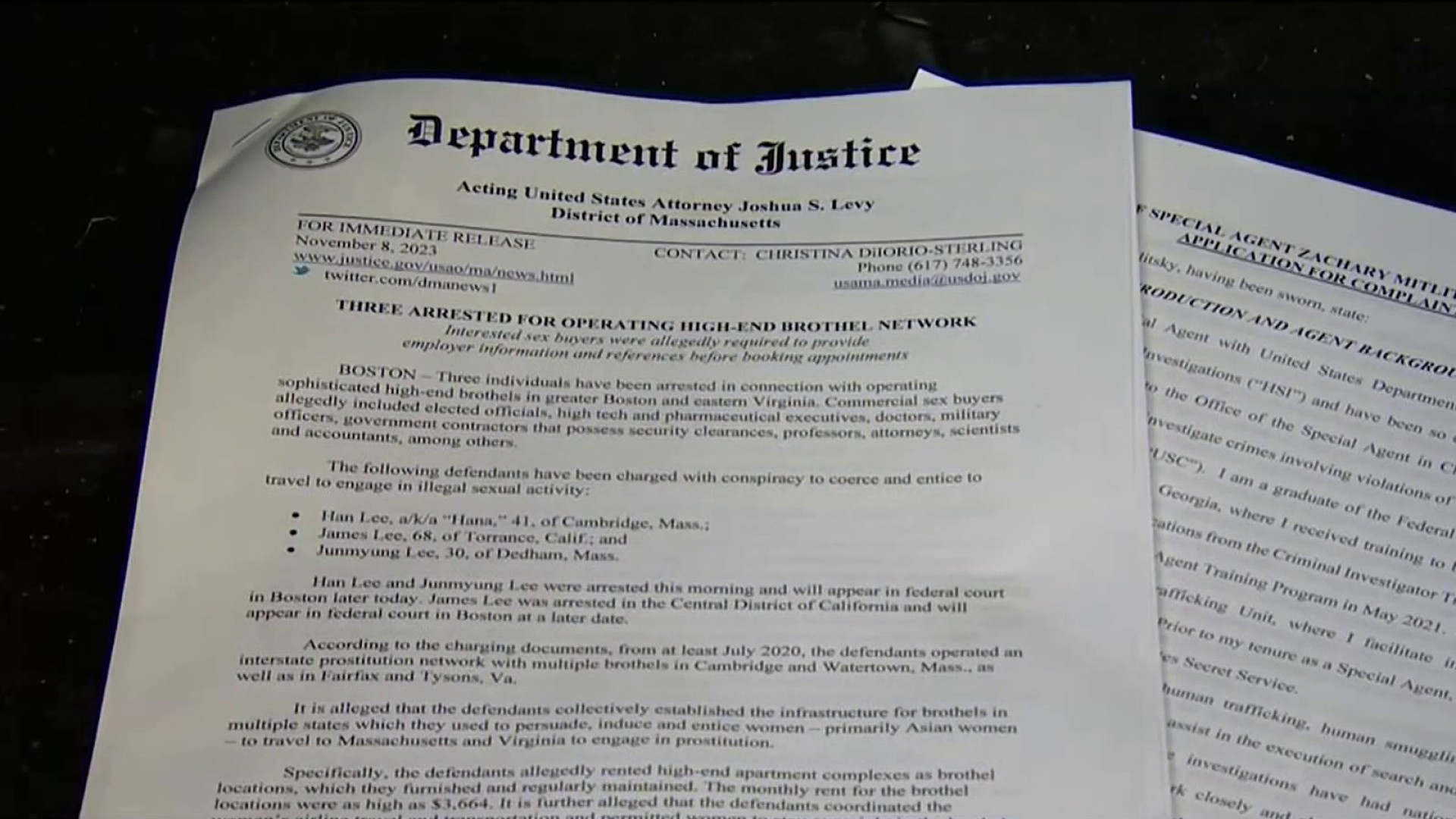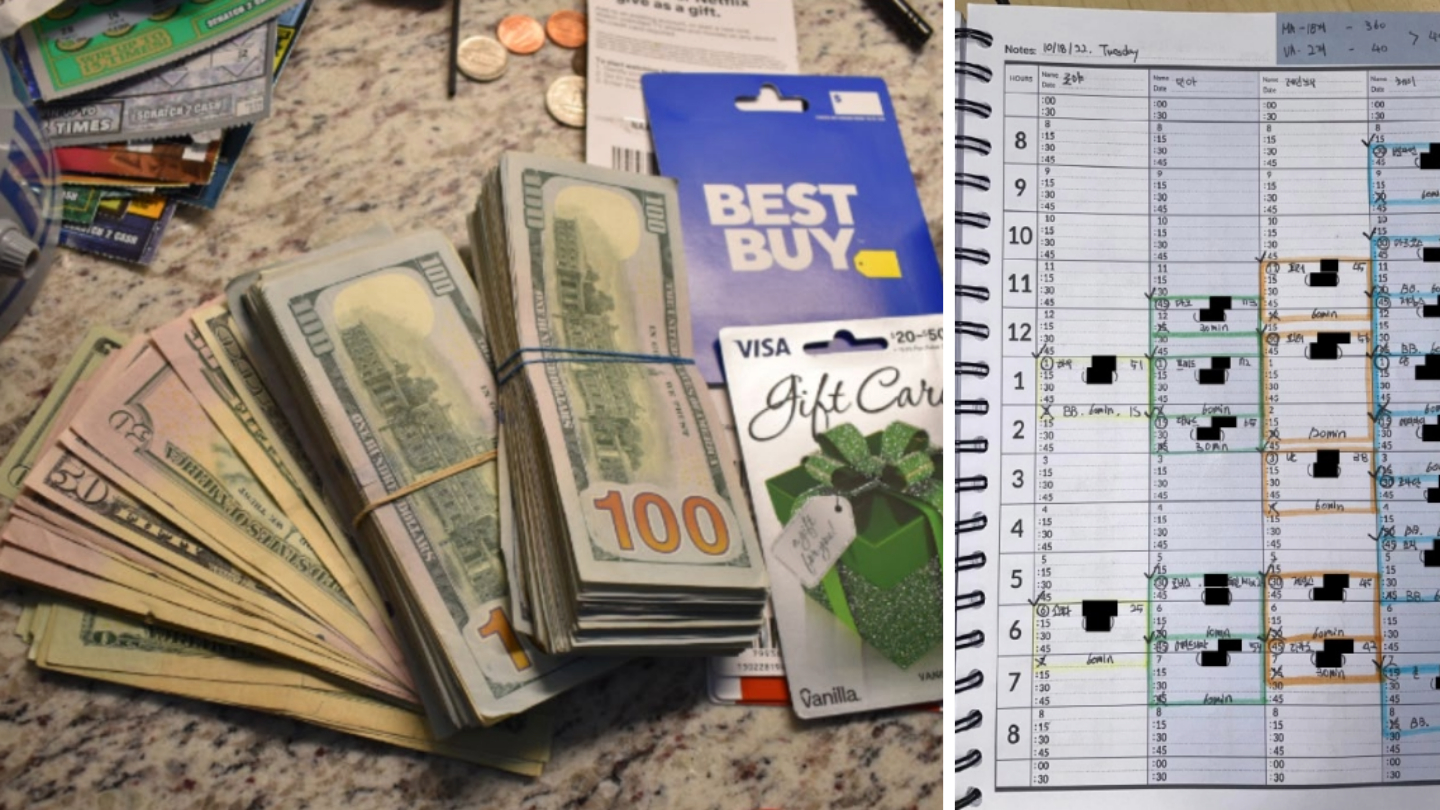
Federal authorities announced plans this week to bring charges against 28 people accused of paying for sex in a high-end brothel network.
The names of the accused have yet to be released, but the first court appearances will be open to the public, a court ruled Thursday in response to requests from NBC10 Boston and other news outlets.
"Show cause hearings" being closed to the public is a concept unique to Massachusetts' criminal justice system. It allows people accused of misdemeanors who haven't been arrested to have closed-door hearings with clerk magistrates. Typically, the cases are only made public if the magistrate decides there is enough probable cause to approve the criminal charges.
But following media requests, Cambridge District court Clerk-Magistrate Sharon Shelfer Casey allowed the proceedings to be open to the public, citing public interest in the case.
Get New England news, weather forecasts and entertainment stories to your inbox. Sign up for NECN newsletters.
The arrests of three people in connection with the brothel organization alleged to have operated in Massachusetts and Virginia drew public attention, and acting U.S. Attorney Joshua Levy of Massachusetts previously said that the list of accused clients included politicians, professors, military officers and pharmaceutical executives.
"Having considered all of the facts and circumstances and the above referenced request, the request is hereby allowed," Casey wrote Thursday.
"If these men were to rob a bank, they would be all over the news," argued Audrey Morrissey, a survivor of sex trafficking.
Morrissey, who now works for the advocacy organization My Life My Choice, has called for the alleged buyers to be exposed.
"Back when I was in the life, we were arrested and the men were let go," she said. "We need to hold them accountable."
Greg Sullivan, the president of the New England's First Amendment Coalition, said the rule was originally put in place to protect those who are falsely accused. He is also calling for more transparency.
"I would love to see these secret hearings abolished by the legislature," Sullivan said.
Sullivan pointed to the same exception Casey cited, in which public interest outweighs someone's right to privacy.
"A high-ranking government official, a principal at the local elementary school, we can think of examples where the public absolutely has a right to know what's going on," he said.
Advocates said they would fight for that to happen in the brothel case because they believe exposing the buyers is the best way to shut down demand.
"The demand for commercial sex drives the trafficking. People wouldn't traffic people if people weren't buying people," said Alisa Bernard of World Without Exploitation.
Bernard and others are pushing for legislation they said will help victims in cases like these. It would end the arrests of those who are exploited and expand the resources to help them.



